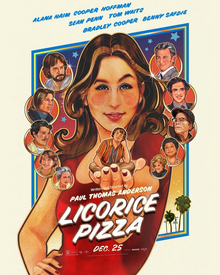Score: C+
Directed by Kenneth Branaugh
Starring Kenneth Branaugh, Gal Gadot, Armie Hammer, Emma Mackey, et. al.
Running time: 127 minutes
Rated PG-13
Long Story Short: Kenneth Branaugh follows up his hit adaptation of Murder on the Orient Express with another Agatha Christie story led by detective Poirot. If you've seen Murder, you'll be familiar with the basic structure/mystery setup, and the large cast of bold characters, but it simply doesn't work as well this time. Mostly, in my opinion, that's because of a darker tone with little - by character or plot - to attach your sympathies to. See it if you want a change of pace, but it's not for everyone.
Famed detective Hercule Poirot (Branaugh) is enjoying a vacation in Egypt when he runs into an old friend, Bouc (Bateman). Bouc is part of a group that is celebrating a couple's honeymoon - Linnet (Gadot) and Simon (Hammer). The group is shadowed, however, by an unwelcome presence, Jackie (Macky), who seems intent on spoiling the couple's fun. Linnet, Simon, Poirot and the rest board a cruise ship to sail down the Nile, and hopefully escape Jackie. However, Jackie was not the only troublemaker; in the confines of the ship, old resentments and entanglements come to the surface. After a shocking murder, Poirot is on the case, racing to find the culprit before they can escape - or kill again.
Death on the Nile, a sequel to Murder on the Orient Express, has about the same structure and style as its predecessor but fares worse in many ways, particularly due to its strikingly dark tone. Based on another of Agatha Christie's Poirot mysteries, it has her classic whodunit story template which is fleshed out by the eccentric detective and a colorful cast of suspects. In Murder, Branaugh - as lead actor and director - established Poirot as both an entertaining and interesting protagonist, and the film focused on him. Unfortunately, Nile takes Poirot for granted; sure, there are some fun bits sprinkled in, whether fussing over dessert or digging into an interrogation. But he's mostly just a spectator - one who at least should have had some more biting commentary on his mostly unworthy companions. The murder mystery itself is also worse - not necessarily in the mechanics, but more in the tone. Where Murder at least offered a sympathetic rationale for its crime, built up to throughout the story, Nile's is based entirely on greed and cruelty with quite a bit of collateral on top.
The dark nature of the crime contrasts oddly with both the setting and the main plot. Nile features much more spectacular environments and vistas than the cold, cramped (but effective) train of Murder, but it's all an illusion of wonder; in fact, much of the CGI is noticeably shoddily done. Then there is the honeymoon that serves as the backbone, which should in theory be a pure, happy celebration. But the couple's history ruined - at least for me - any joy, since Linnet and Simon both left prior engagements to be with each other; Hammer's involvement, particularly in this role, is also unfortunate. There aren't many characters to like outside the couple, either, except for Linnet's old classmate Rosalie (Wright) and her jazz singer aunt, Salome (Okonedo). The performances are fine, but it's hard to get attached to anyone. I'm focusing on the negative, but I can't help but compare it to its kin, the superior Murder on the Orient Express. Nile has its share of enjoyable moments, but when I think about what it could have been in the context of Murder, there is clear disappointment.
***
When Murder came out, I was happy to go see it; fewer and fewer dramas, let alone mysteries, like it are found in Hollywood today. It wasn't a classic but it was solid, so I was also interested to see this sequel. Well, it's not just the blockbusters that can fall prey to disappointing comparisons with the original. To be honest, my rating might be overly affected by my distaste for the dark tone and reaction to the particulars of the plot. So, others may find Nile more equivalent in quality to Murder than I did. It was not for me, though. Murders don't have to be all bad, right? Go ahead and try this in the theater if you're a big mystery/Christie fan, but waiting to see it at home (or not at all) is just fine, too.
* By http://www.impawards.com/2022/death_on_the_nile_ver3.html, Fair use, https://en.wikipedia.org/w/index.php?curid=61933419

